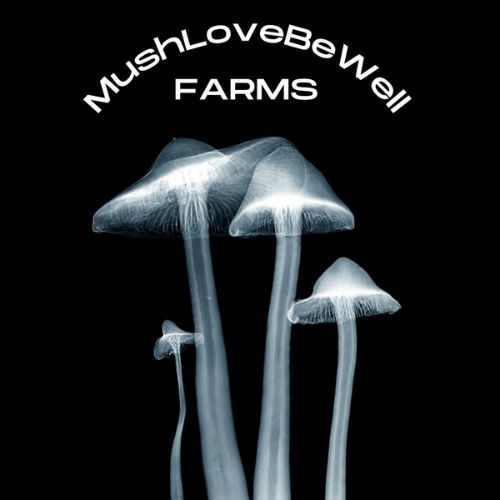In the realm of functional foods and natural remedies, few substances have garnered as much attention as Lion’s Mane mushrooms (Hericium erinaceus). Revered for their unique appearance and powerful health benefits, these mushrooms have been used for centuries in traditional medicine. Today, modern science is uncovering the vast potential of Lion’s Mane, solidifying its reputation as a superfood for the mind and body.
This blog post explores the origins, nutritional profile, and myriad health benefits of Lion’s Mane mushrooms, along with practical ways to incorporate them into your life.
What Are Lion’s Mane Mushrooms?
Lion’s Mane mushrooms are a type of edible fungus characterized by their cascading, white, shaggy spines that resemble a lion’s mane. Native to North America, Europe, and Asia, these mushrooms have long been a staple in traditional Chinese and Japanese medicine. They grow on hardwood trees and are typically found in late summer to early fall.
While their culinary appeal is undeniable, Lion’s Mane mushrooms are particularly celebrated for their medicinal properties. Rich in bioactive compounds, they offer a range of health benefits that extend far beyond basic nutrition.
Nutritional Profile
Lion’s Mane mushrooms are low in calories but packed with essential nutrients. A typical serving provides:
- Proteins: Supporting muscle repair and growth.
- Dietary Fiber: Promoting gut health and regular digestion.
- Antioxidants: Fighting free radicals and reducing oxidative stress.
- Polysaccharides and Beta-Glucans: Known for their immune-boosting properties.
In addition to these, Lion’s Mane contains unique compounds like hericenones and erinacines, which are responsible for its remarkable neuroprotective and cognitive-enhancing effects.
Key Health Benefits of Lion’s Mane Mushrooms
- Supports Cognitive Function
One of the most well-known benefits of Lion’s Mane is its ability to enhance brain health. Research shows that the mushroom’s bioactive compounds stimulate the production of nerve growth factor (NGF), a protein essential for the growth, maintenance, and survival of neurons.
- Improved Memory and Learning: Studies have demonstrated that Lion’s Mane can improve cognitive function, particularly in older adults experiencing mild cognitive impairment.
- Neuroprotection: By promoting neural regeneration, Lion’s Mane may help protect against neurodegenerative diseases like Alzheimer’s and Parkinson’s.
- Reduces Anxiety and Depression
Lion’s Mane mushrooms may have a positive impact on mental health by supporting brain function and reducing inflammation. Clinical trials have shown that consuming Lion’s Mane can alleviate symptoms of anxiety and depression, likely due to its ability to regenerate brain cells and improve communication between neurons.
- Boosts Immune System
The polysaccharides and beta-glucans in Lion’s Mane are potent immune modulators. They enhance the activity of the immune system by stimulating the production of white blood cells and improving the body’s ability to fight off infections and diseases.
- Promotes Gut Health
Emerging research suggests that Lion’s Mane may improve gut health by protecting the mucosal lining and encouraging the growth of beneficial gut bacteria. A healthy gut is linked to better digestion, enhanced immunity, and improved mental health, thanks to the gut-brain axis.
- Supports Cardiovascular Health
Lion’s Mane mushrooms may help reduce the risk of heart disease by improving fat metabolism and reducing inflammation. Studies indicate that they can lower triglyceride levels, regulate blood sugar, and prevent the oxidation of LDL cholesterol—a key factor in the development of atherosclerosis.
- Reduces Inflammation and Oxidative Stress
Chronic inflammation and oxidative stress are at the root of many diseases, including cancer, diabetes, and autoimmune disorders. Lion’s Mane’s antioxidant properties help combat these issues, promoting overall health and longevity.
- May Help Prevent Cancer
Preliminary research suggests that Lion’s Mane mushrooms may have anti-cancer properties. Test-tube studies have shown that extracts from the mushroom can inhibit the growth of cancer cells, including those of the stomach, liver, and colon. While more human studies are needed, these findings are promising.
- Aids in Recovery from Nervous System Injuries
Lion’s Mane may accelerate the recovery process for nervous system injuries. Its ability to stimulate NGF production and support the repair of damaged nerves makes it a potential therapy for conditions such as peripheral nerve damage and spinal cord injuries.
How to Incorporate Lion’s Mane Mushrooms into Your Diet
Adding Lion’s Mane mushrooms to your routine is simple, whether you prefer to consume them fresh, powdered, or in supplement form. Here are some ideas:
- Culinary Uses:
- Cooking Fresh Mushrooms: Lion’s Mane mushrooms have a seafood-like texture and flavor, often compared to crab or lobster. They can be sautéed, grilled, or added to soups and stir-fries.
- Powdered Form: Add Lion’s Mane mushroom powder to smoothies, teas, or coffee for a convenient daily boost.
- Supplements:
- Capsules and tinctures are widely available and provide a concentrated dose of Lion’s Mane extract. Always choose high-quality, third-party tested products to ensure purity and potency.
- Beverages:
- Lion’s Mane-infused coffees and teas are becoming increasingly popular as a way to combine the benefits of the mushroom with your daily caffeine fix.
Precautions and Considerations
While Lion’s Mane is generally safe for most people, there are some considerations to keep in mind:
- Allergies: Rarely, individuals may experience allergic reactions. If you’re new to Lion’s Mane, start with a small dose to test for sensitivity.
- Medication Interactions: Consult a healthcare provider if you’re taking medications, especially those affecting the immune system or blood clotting.
- Pregnancy and Breastfeeding: Limited research exists on the safety of Lion’s Mane during pregnancy and breastfeeding, so consult a medical professional before use.
Future Research and Potential
The growing interest in Lion’s Mane mushrooms has spurred significant research into their potential applications. Current studies are investigating:
- Their role in treating neurodegenerative diseases like ALS (amyotrophic lateral sclerosis).
- Their effectiveness in managing autoimmune conditions.
- Their potential as an adjunct therapy for cancer treatment.
As research progresses, it’s likely that Lion’s Mane will play an even greater role in the fields of medicine, nutrition, and wellness.
Conclusion
Lion’s Mane mushrooms are much more than a culinary delicacy; they are a natural powerhouse with wide-ranging benefits for the mind and body. From enhancing cognitive function and mental health to supporting immunity and gut health, the potential of Lion’s Mane is vast and impressive.
Whether you’re looking to boost your brainpower, improve your overall health, or explore natural remedies, incorporating Lion’s Mane mushrooms into your routine is a step worth considering. As science continues to uncover the mysteries of this remarkable fungus, one thing is clear: Lion’s Mane is a gift from nature that offers incredible promise for human health and well-being.
The post The Benefits of Lion’s Mane Mushrooms: A Natural Powerhouse for Brain and Body first appeared on Mycology Now.
The post The Benefits of Lion’s Mane Mushrooms: A Natural Powerhouse for Brain and Body appeared first on Mycology Now.




